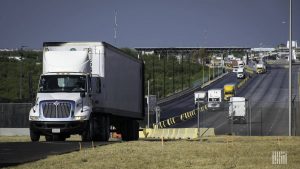In the realm of global trade, efficient logistics and transportation play a pivotal role in fostering economic growth and connectivity between nations. One such example is the cross-border trucking industry between Malaysia and Singapore. This strategic partnership between the two neighboring countries has greatly facilitated the movement of goods and services, benefiting businesses and consumers alike.
Cross-border trucking refers to the transportation of goods by road across international borders. Malaysia and Singapore, being geographically close and having well-developed road networks, have capitalized on this advantage to promote seamless trade and enhance regional integration. This mode of transportation offers several advantages, including flexibility, cost-effectiveness, and faster delivery times compared to other means of transport, such as air or sea freight.
The Malaysia-Singapore cross-border trucking industry has witnessed significant growth in recent years, thanks to the efforts of both governments in promoting trade facilitation. Various initiatives have been implemented to streamline customs procedures, minimize bureaucratic red tape, and improve the efficiency of border crossings. These measures have not only bolstered trade activities between the two countries but have also attracted foreign investments and stimulated economic development in the region.
One of the key factors contributing to the success of the cross-border trucking industry is the implementation of the Malaysia-Singapore Free Trade Agreement (MSFTA). This agreement, signed in 2005, has eliminated tariffs and non-tariff barriers, allowing for the smooth movement of goods between the two countries. This has resulted in a surge in bilateral trade, creating new business opportunities and increasing cross-border trucking demands.
Another notable development is the introduction of the ASEAN Single Window (ASW) initiative, which aims to integrate customs clearance processes and information systems among ASEAN member countries. Malaysia and Singapore were among the early adopters of this system, enabling traders to submit electronic customs documents and clear goods more efficiently. The ASW has not only expedited cross-border trucking operations but has also improved transparency, reduced corruption, and enhanced security in the supply chain.
Moreover, the construction of new border infrastructure, such as the Malaysia-Singapore Second Link and the Malaysia-Singapore Rapid Transit System (RTS) Link, further facilitates cross-border trucking. These infrastructure projects have expanded the capacity for trade and enhanced connectivity between the two countries, enabling goods to be transported more swiftly and efficiently.
In addition to economic benefits, cross border trucking Malaysia Singapore has also contributed to environmental sustainability. By optimizing truckloads and reducing empty trips, logistics companies have been able to minimize fuel consumption and greenhouse gas emissions. Furthermore, the use of modern technologies, such as GPS tracking and route optimization software, has further improved fuel efficiency and reduced carbon footprints in the transportation sector.

However, like any industry, cross-border trucking also faces challenges that need to be addressed for its continued growth and sustainability. One of the major concerns is the harmonization of regulations and standards between Malaysia and Singapore. Despite efforts to align customs procedures, there are still differences in documentation requirements and administrative processes, leading to delays and inefficiencies at the border.
To overcome these challenges, both governments have been working closely to establish a harmonized framework for cross-border trucking operations. This includes the implementation of a single electronic cargo manifest system and the adoption of common standards for documentation and procedures. These initiatives aim to simplify and streamline the cross-border processes, reducing administrative burdens and ensuring smooth operations for trucking companies.
In conclusion, cross-border trucking between Malaysia and Singapore plays a crucial role in promoting trade and enhancing connectivity in the region. The synergy between the two countries has resulted in significant economic benefits, attracting investments, and boosting bilateral trade. With continued efforts to streamline processes and harmonize regulations, the cross-border trucking industry is poised to thrive, driving economic growth and fostering closer ties between Malaysia and Singapore.
